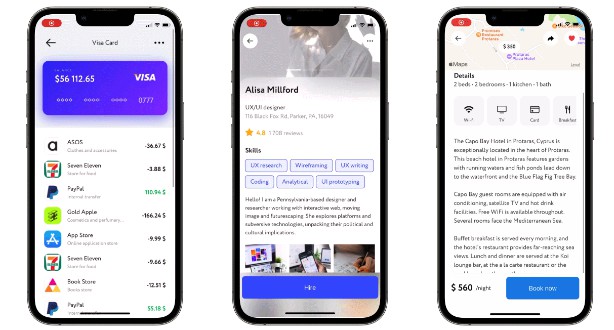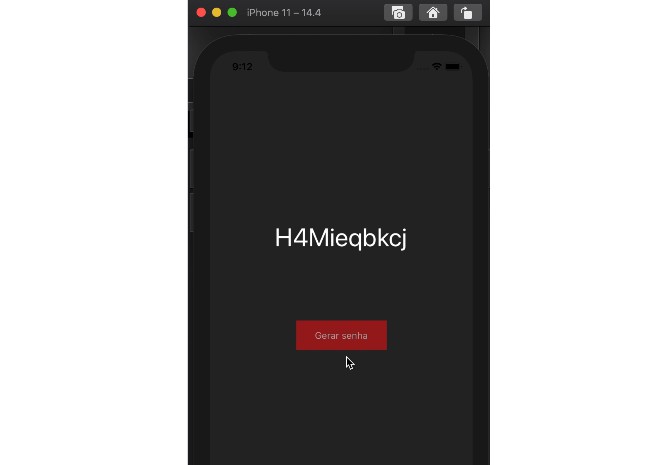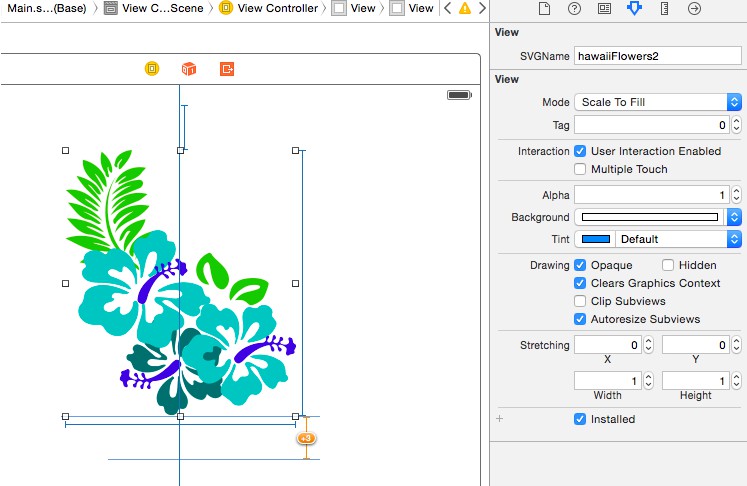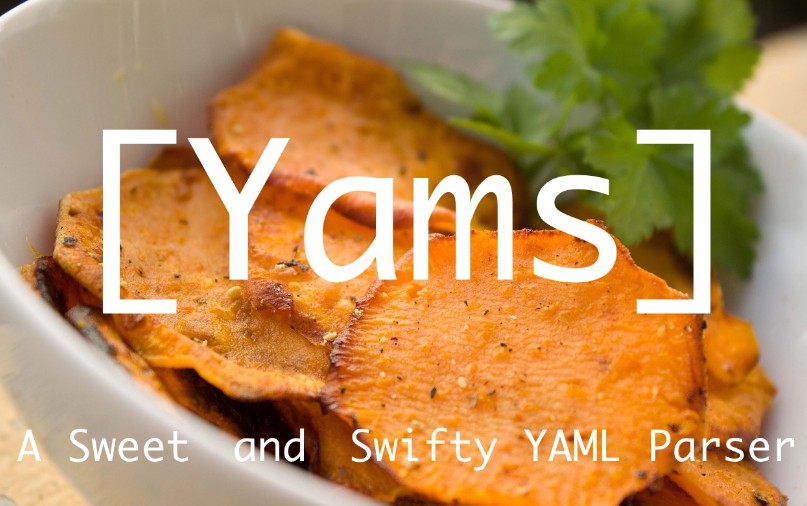一个结果生成器,用于构建 HTML 解析器并将 HTML 元素转换为强类型结果,灵感来自 RegexBuilder
HTMLParserBuilder
一个结果生成器,用于构建 HTML 解析器并将 HTML 元素转换为强类型结果,灵感来自 RegexBuilder。
注意:是从 apple/swift-experimental-string-processing 复制而来的。
CaptureTransform.swiftTypeConstruction.swift
安装
要求
- 斯威夫特 5.7 (
buildPartialBlock) - macOS 10.15
- iOS 13.0
- 电视操作系统 13.0
- 手表操作系统 6.0
注意:HTMLParserBuilder目前只支持支持Objective-C运行时的平台,因为它依赖于HTMLKit,一个Objective-C HTML解析器库。
dependencies: [
// ...
.package(name: "HTMLParserBuilder", url: "https://github.com/danny1113/html-parser-builder.git", from: "1.0.0")
]
介绍
解析 HTML 可能很复杂,例如,您要解析下面的简单 html:
<h1 id="hello">hello, world</h1>
<div id="group">
<h1>INSIDE GROUP h1</h1>
<h2>INSIDE GROUP h2</h2>
</div>
现有的 HTML 解析库有以下缺点:
- 命名每个捕获的元素
- 随着您要捕获的元素变得越来越复杂,它可能会更加复杂
- Error handling can be hard
let htmlString = "<html>...</html>"
let doc = HTMLDocument(string: htmlString)
let first = doc.querySelector("#hello")?.textContent
let group = doc.querySelector("#group")
let second = group?.querySelector("h1")?.textContent
let third = group?.querySelector("h2")?.textContent
if let first = first,
let second = second,
let third = third {
// ...
} else {
// ...
}
HTMLParserBuilder comes with some really great advantages:
- Strongly-typed capture result
- Structrued syntax
- Composible API
- Support for async await
- Error handling built in
You can construct your parser which reflect your original HTML structure:
let capture = HTML {
TryCapture("#hello") { (element: HTMLElement?) -> String? in
return element?.textContent
} // => HTML<String?>
Local("#group") {
Capture("h1", transform: \.textContent) // => HTML<String>
Capture("h2", transform: \.textContent) // => HTML<String>
} // => HTML<(String, String)>
} // => HTML<(String?, String, String)>
let htmlString = "<html>...</html>"
let doc = HTMLDocument(string: htmlString)
let output = try doc.parse(capture)
// => (String?, String, String)
// output: (Optional("hello, world"), "INSIDE GROUP h1", "INSIDE GROUP h2")
Note: You can now compose up to 10 components inside the builder, but you can group your captures inside
Localas a workaround.
API Detail Usage
Parsing
HTMLParserBuilder provides 2 functions for parsing:
public func parse<Output>(_ html: HTML<Output>) throws -> Output
public func parse<Output>(_ html: HTML<Output>) async throws -> Output
Note: You can choose the async version for even better performance, since it use structured concurrency to parallelize child tasks.
HTML
You can construct your parser inside , it can also transform to other data type.HTML
struct Group {
let h1: String
let h2: String
}
let capture = HTML {
Capture("#group h1", transform: \.textContent) // => HTML<String>
Capture("#group h2", transform: \.textContent) // => HTML<String>
} transform: { (output: (String, String)) -> Group in
return Group(
h1: output.0,
h2: output.1
)
} // => HTML<Group>
Capture
Using is the same as , you pass in CSS selector to find the HTML element, and you can transform it to any other type you want:CapturequerySelector
- innerHTML
- textContent
- attributes
- …
Note: If can’t find the HTML element that match the selector, it will throw an error cause the whole parse fail, for failable capture, see
TryCapture.Capture
You can use this API with various declaration that is most suitable for you:
Capture("#hello", transform: \.textContent)
Capture("#hello") { $0.textContent }
Capture("#hello") { (e: HTMLElement) -> String in
return e.textContent
}
TryCapture
TryCapture is a litte different from , it also calls to find the HTML element, but it returns an optional HTML element.CapturequerySelector
For this example, it will produce the result type of , and the result will be when the HTML element can’t be found.String?nil
TryCapture("#hello") { (e: HTMLElement?) -> String? in
return e?.innerHTML
}
CaptureAll
Using is the same as , you pass in CSS selector to find all HTML elements that match the selector, and you can transform it to any other type you want:CaptureAllquerySelectorAll
You can use this API with various declaration that is most suitable for you:
CaptureAll("h1") { $0.map(\.textContent) }
CaptureAll("h1") { (e: [HTMLElement]) -> [String] in
return e.map(\.textContent)
}
You can also capture other elements inside and transform to other type:
<div class="group">
<h1>Group 1</h1>
</div>
<div class="group">
<h1>Group 2</h1>
</div>
CaptureAll("div.group") { (elements: [HTMLElement]) -> [String] in
return elements.compactMap { e in
return e.querySelector("h1")?.textContent
}
}
// => [String]
// output: ["Group 1", "Group 2"]
Local
Local will find a HTML element that match the selector, and all the captures inside will find its element based on the element found by , this is useful when you just want to capture element that is inside the local group.Local
Just like , can also transform captured result to other data type by adding :HTMLLocaltransform
struct Group {
let h1: String
let h2: String
}
Local("#group") {
Capture("h1", transform: \.textContent) // => HTML<String>
Capture("h2", transform: \.textContent) // => HTML<String>
} transform: { (output: (String, String)) -> Group in
return Group(
h1: output.0,
h2: output.1
)
} // => Group
Note: If can’t find the HTML element that match the selector, it will throw an error cause the whole parse fail, you can use
TryCaptureas alternative.Local
LateInit
This library also comes with a handy property wrapper: , which can delay the initialization until the first time you access it.LateInit
struct Container {
@LateInit var capture = HTML {
Capture("h1", transform: \.textContent)
}
}
// it needs to be `var` to perform late initialization
var container = Container()
let output = doc.parse(container.capture)
// ...
Wrap Up
| API | Use Case |
|---|---|
| Capture | Throws error when element can’t be captured |
| TryCapture | Returns when element can’t be capturednil |
| CaptureAll | Capture all elements match the selector |
| Local | Capture elements in the local scope |
| LateInit | Delay the initialization to first time you access it |
Advanced use case
- Pass into another
HTMLComponent - Transform to custom data structure before parasing
struct Group {
let h1: String
let h2: String
}
// |--------------------------------------------------------------|
let groupCapture = HTML { // |
Local("#group") { // |
Capture("h1", transform: \.textContent) // => HTML<String> // |
Capture("h2", transform: \.textContent) // => HTML<String> // |
} // => HTML<(String, String)> // |
// |
} transform: { output -> Group in // |
return Group( // |
h1: output.0, // |
h2: output.1 // |
) // |
} // => HTML<Group> // |
// |
let capture = HTML { // |
TryCapture("#hello") { (element: HTMLElement?) -> String? in // |
return element?.textContent // |
} // => HTML<String?> // |
// |
groupCapture // => HTML<Group> -------------------------------------|
} // => HTML<(String?, Group)>
let htmlString = "<html>...</html>"
let doc = HTMLDocument(string: htmlString)
let output = try doc.parse(capture)
// => (String?, Group)



